“Dorothy Jane Roberts (May 8, 1929 – September 5, 1984) was an American author and poet, who claimed to be psychic and a spirit medium channeling a personality who called himself ‘Seth.’ Her publication of the Seth texts, known as the Seth Material, established her as one of the preeminent figures in the world of paranormal phenomena.” Wikipedia
 The Seth books channeled by Janes Roberts were very popular during the 1960s-1980s. I’ve read most of them and believe that The Nature of Personal Reality is the most practical in terms of how the reader can put the ideas into use. I’ve been greatly influenced by the Seth Material even though much of the information in the other books is interesting chiefly in a big-picture, philosophical sense rather than having a direct application to ourselves. It works! But, it requires dedication to use since it runs counter to everyday beliefs and concepts. I seldom meet anyone who believes that we create our own reality.
The Seth books channeled by Janes Roberts were very popular during the 1960s-1980s. I’ve read most of them and believe that The Nature of Personal Reality is the most practical in terms of how the reader can put the ideas into use. I’ve been greatly influenced by the Seth Material even though much of the information in the other books is interesting chiefly in a big-picture, philosophical sense rather than having a direct application to ourselves. It works! But, it requires dedication to use since it runs counter to everyday beliefs and concepts. I seldom meet anyone who believes that we create our own reality.
I can tell that interest in the books has waned because not only are they seldom mentioned, but the Amazon listings don’t include the original publisher descriptions the books had when they were new. So, while my link on the cover picture is to the book’s Amazon page, the publisher’s description below comes from the Internet Archive.
About the Book
“From the Bestselling Author of Seth Speaks, The ‘Seth Books’ by Jane Roberts are world-renowned for comprising one of the most profound bodies of work ever written on the true nature of reality.In this perennial bestseller, Seth challenges our assumptions about the nature of reality, and shows us how we create our personal reality through our conscious beliefs about ourselves, others, and the world. He stresses the individual’s capacity for conscious action, and provides excellent exercises that show us how to apply his empowering insights to any life situation. His message is clear: we are not at the mercy of the subconscious, or helpless before forces we cannot understand. ‘We are Gods couched in creaturehood,’ Seth says, ‘We are given the ability to form our experience as our thoughts and feelings become actualized.’
“You are a multidimensional personality. Trust the miracle of your own being. ‘Make no divisions between the physical and the spiritual in your lifetimes, for the spiritual speaks with a physical voice, and the corporeal body is the creation of the spirit.’ — Jane Roberts, Speaking for SethPraise for The Seth Books by Jane Roberts ‘The Seth books present an alternate map of reality with a new diagram of the psyche . . . useful to all explorers of consciousness.’ — Deepak Chopra, M.D., author of The Seven Spiritual Laws of Success ‘Seth was one of my first metaphysical teachers. He remains a constant source of knowledge and inspiration in my life.’ — Marianne Williamson, author of A Return to Love “I would like to see the Seth books as required reading for anyone on their spiritual pathway.’
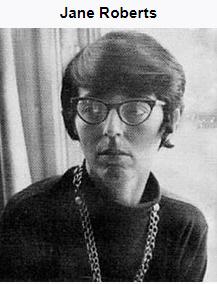 “The amazing in-depth information in the Seth books is as relevant today as it was in the early ’70s when Jane Roberts first channeled this material.” — Louise Hay, author of You Can Heal Your Life ‘Quite simply one of the best books I’ve ever read!. — Richard Bach, author of Jonathan Livingston Seagull ‘I count Jane Roberts’ brilliant book, The Nature of Personal Reality, as a spiritual classic and one of the influential books in my life. As I closed the last page, I looked up at a new world —boundless and filled with possibility.’ — Dan Millman, author of Way of the Peaceful Warrior The Nature of Personal Reality had an important influence on my life and work. ‘Seth’s teachings provided one of the initial inspirations for writing Creative Visualization.’ — Shakti Gawain, author of Creative Visualization ‘The Seth books were of great benefit to me on my spiritual journey and helped me to see another way of looking at the world.’ — Gerald G. Jampolsky, author of Love Is Letting Go of Fear ‘As you read Seth’s words, you will gain more than just new ideas. Seth’s energy comes through every page — energy that expands your consciousness and changes your thoughts about the nature of reality.’ — Sanaya Roman, author of Living with Joy ‘To my great surprise — and slight annoyance — I found that Seth eloquently and lucidly articulated a view of reality that I had arrived at only after great effort and an extensive study of both paranormal phenomena and quantum physics….’ — Michael Talbot, author of The Holographic Universe”
“The amazing in-depth information in the Seth books is as relevant today as it was in the early ’70s when Jane Roberts first channeled this material.” — Louise Hay, author of You Can Heal Your Life ‘Quite simply one of the best books I’ve ever read!. — Richard Bach, author of Jonathan Livingston Seagull ‘I count Jane Roberts’ brilliant book, The Nature of Personal Reality, as a spiritual classic and one of the influential books in my life. As I closed the last page, I looked up at a new world —boundless and filled with possibility.’ — Dan Millman, author of Way of the Peaceful Warrior The Nature of Personal Reality had an important influence on my life and work. ‘Seth’s teachings provided one of the initial inspirations for writing Creative Visualization.’ — Shakti Gawain, author of Creative Visualization ‘The Seth books were of great benefit to me on my spiritual journey and helped me to see another way of looking at the world.’ — Gerald G. Jampolsky, author of Love Is Letting Go of Fear ‘As you read Seth’s words, you will gain more than just new ideas. Seth’s energy comes through every page — energy that expands your consciousness and changes your thoughts about the nature of reality.’ — Sanaya Roman, author of Living with Joy ‘To my great surprise — and slight annoyance — I found that Seth eloquently and lucidly articulated a view of reality that I had arrived at only after great effort and an extensive study of both paranormal phenomena and quantum physics….’ — Michael Talbot, author of The Holographic Universe”
–
 The book is in sync with James Allen’s As a Man Thinketh, the 1903 book I’ve mentioned often in my work. The book is available on Amazon and free of Project Gutenberg. The concepts appear in many places, but this book brings them together.
The book is in sync with James Allen’s As a Man Thinketh, the 1903 book I’ve mentioned often in my work. The book is available on Amazon and free of Project Gutenberg. The concepts appear in many places, but this book brings them together.
—Malcolm


 “The amazing in-depth information in the Seth books is as relevant today as it was in the early ’70s when Jane Roberts first channeled this material.” — Louise Hay, author of You Can Heal Your Life ‘Quite simply one of the best books I’ve ever read!. — Richard Bach, author of Jonathan Livingston Seagull ‘I count Jane Roberts’ brilliant book, The Nature of Personal Reality, as a spiritual classic and one of the influential books in my life. As I closed the last page, I looked up at a new world —boundless and filled with possibility.’ — Dan Millman, author of Way of the Peaceful Warrior The Nature of Personal Reality had an important influence on my life and work. ‘Seth’s teachings provided one of the initial inspirations for writing Creative Visualization.’ — Shakti Gawain, author of Creative Visualization ‘The Seth books were of great benefit to me on my spiritual journey and helped me to see another way of looking at the world.’ — Gerald G. Jampolsky, author of Love Is Letting Go of Fear ‘As you read Seth’s words, you will gain more than just new ideas. Seth’s energy comes through every page — energy that expands your consciousness and changes your thoughts about the nature of reality.’ — Sanaya Roman, author of Living with Joy ‘To my great surprise — and slight annoyance — I found that Seth eloquently and lucidly articulated a view of reality that I had arrived at only after great effort and an extensive study of both paranormal phenomena and quantum physics….’ — Michael Talbot, author of The Holographic Universe”
“The amazing in-depth information in the Seth books is as relevant today as it was in the early ’70s when Jane Roberts first channeled this material.” — Louise Hay, author of You Can Heal Your Life ‘Quite simply one of the best books I’ve ever read!. — Richard Bach, author of Jonathan Livingston Seagull ‘I count Jane Roberts’ brilliant book, The Nature of Personal Reality, as a spiritual classic and one of the influential books in my life. As I closed the last page, I looked up at a new world —boundless and filled with possibility.’ — Dan Millman, author of Way of the Peaceful Warrior The Nature of Personal Reality had an important influence on my life and work. ‘Seth’s teachings provided one of the initial inspirations for writing Creative Visualization.’ — Shakti Gawain, author of Creative Visualization ‘The Seth books were of great benefit to me on my spiritual journey and helped me to see another way of looking at the world.’ — Gerald G. Jampolsky, author of Love Is Letting Go of Fear ‘As you read Seth’s words, you will gain more than just new ideas. Seth’s energy comes through every page — energy that expands your consciousness and changes your thoughts about the nature of reality.’ — Sanaya Roman, author of Living with Joy ‘To my great surprise — and slight annoyance — I found that Seth eloquently and lucidly articulated a view of reality that I had arrived at only after great effort and an extensive study of both paranormal phenomena and quantum physics….’ — Michael Talbot, author of The Holographic Universe” The book is in sync with James Allen’s As a Man Thinketh, the 1903 book I’ve mentioned often in my work. The book is available on Amazon and free of
The book is in sync with James Allen’s As a Man Thinketh, the 1903 book I’ve mentioned often in my work. The book is available on Amazon and free of 

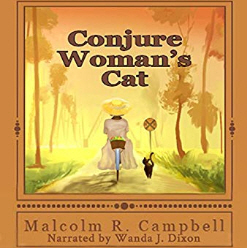
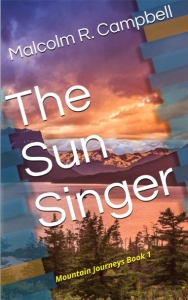

 “Doris Helen Kearns Goodwin (born January 4, 1943) is an American biographer, historian, former sports journalist, and political commentator. She has written biographies of numerous U.S. presidents. Goodwin’s book No Ordinary Time: Franklin and Eleanor Roosevelt: The Home Front in World War II won the Pulitzer Prize for History in 1995. Goodwin produced the American television miniseries Washington. She was also executive producer of ‘Abraham Lincoln’, a 2022 docudrama on the History Channel. This latter series was based on Goodwin’s Leadership in Turbulent Times.-
“Doris Helen Kearns Goodwin (born January 4, 1943) is an American biographer, historian, former sports journalist, and political commentator. She has written biographies of numerous U.S. presidents. Goodwin’s book No Ordinary Time: Franklin and Eleanor Roosevelt: The Home Front in World War II won the Pulitzer Prize for History in 1995. Goodwin produced the American television miniseries Washington. She was also executive producer of ‘Abraham Lincoln’, a 2022 docudrama on the History Channel. This latter series was based on Goodwin’s Leadership in Turbulent Times.-  Our tax app filed our income taxes with the imperial federal government and the state so that chore is off the plate for another year. I sure don’t miss the days when we had a small business and had to account for sales taxes collected, equipment depreciation, payments to temporary employees, and enough forms to choke a goat. Things are much easier now.
Our tax app filed our income taxes with the imperial federal government and the state so that chore is off the plate for another year. I sure don’t miss the days when we had a small business and had to account for sales taxes collected, equipment depreciation, payments to temporary employees, and enough forms to choke a goat. Things are much easier now.
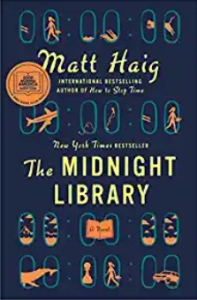 I’m enjoying re-reading Matt Haig’s The Midnight Library in which a person can choose one probable version of his/her life or another, see what it’s like, and then if s/he doesn’t, try another version. I like the associations of the plot with the many worlds’ interpretation of quantum physics. My only quibble with the storyline is that when people drop into the middle of one of their probable selves’ lives, they don’t know what that self would know at that moment. So. they’re flying blind and that means a lot of time is lost figuring out what’s going on.
I’m enjoying re-reading Matt Haig’s The Midnight Library in which a person can choose one probable version of his/her life or another, see what it’s like, and then if s/he doesn’t, try another version. I like the associations of the plot with the many worlds’ interpretation of quantum physics. My only quibble with the storyline is that when people drop into the middle of one of their probable selves’ lives, they don’t know what that self would know at that moment. So. they’re flying blind and that means a lot of time is lost figuring out what’s going on.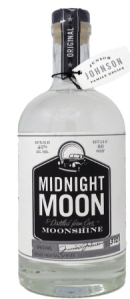
 I still have IBS (Irritable Bowel Syndrome). Since this is a family values-oriented blog (hahaha), I’ll spare you the details of how that works. My long list of things I can no longer eat or drink isn’t too terrible. For example, I’ve switched from milk to Lactaid; that’s worked out fine. I’m not supposed to have booze, including wine or moonshine. But sometimes I can’t resist even though I’ll pay for that indiscretion later in pretty much the same way I pay for putting too much Tabasco sauce in my chili or buying lunch from Popeyes Chicken (my favorite).
I still have IBS (Irritable Bowel Syndrome). Since this is a family values-oriented blog (hahaha), I’ll spare you the details of how that works. My long list of things I can no longer eat or drink isn’t too terrible. For example, I’ve switched from milk to Lactaid; that’s worked out fine. I’m not supposed to have booze, including wine or moonshine. But sometimes I can’t resist even though I’ll pay for that indiscretion later in pretty much the same way I pay for putting too much Tabasco sauce in my chili or buying lunch from Popeyes Chicken (my favorite).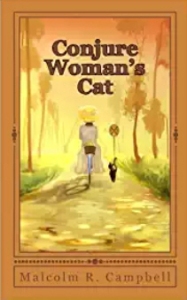
 A kissing gate is a traditional way of allowing access, but not security, between a pasture or other open area used for livestock, and the grounds of an estate where animals are not permitted. In a modern farm, one would probably place a latching gate there with or without a padlock as needed.
A kissing gate is a traditional way of allowing access, but not security, between a pasture or other open area used for livestock, and the grounds of an estate where animals are not permitted. In a modern farm, one would probably place a latching gate there with or without a padlock as needed.
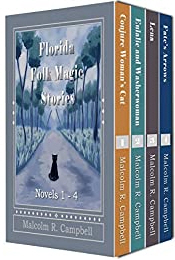


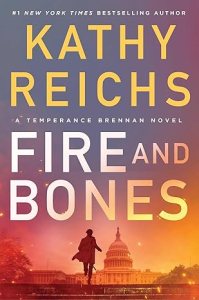
 You can learn more about Reichs on her website
You can learn more about Reichs on her website 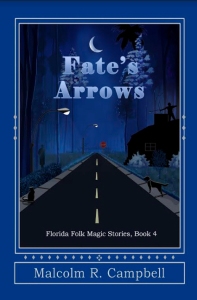

 According to
According to  Following that introduction, the site lists specific uses, including wounds, skin inflamation, menstrual paint, IBS (irritual bowel syndrome), and ailments for which its use has been studied. Check the site for site effects and precautions.
Following that introduction, the site lists specific uses, including wounds, skin inflamation, menstrual paint, IBS (irritual bowel syndrome), and ailments for which its use has been studied. Check the site for site effects and precautions.
 If Rhett wrote it, I read it. Ditch Weed will be released on June 15. I won’t be first in line because I need plenty of beauty sleep and/or time to sleep off the moonshine or Scotch I drank the night before for medical purposes. But, I can worry about that line later by pre-ordering from Twisted Road Publications
If Rhett wrote it, I read it. Ditch Weed will be released on June 15. I won’t be first in line because I need plenty of beauty sleep and/or time to sleep off the moonshine or Scotch I drank the night before for medical purposes. But, I can worry about that line later by pre-ordering from Twisted Road Publications 